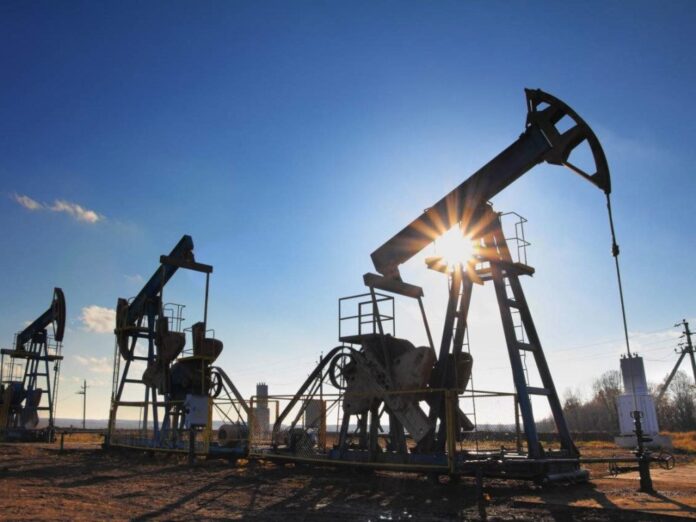LONDON: The sharp rise in wholesale gas prices is spilling over into the oil market, with looming demand for electricity generation and heating likely to further spur the sector this winter.
The spike in demand and consumption could lead the OPEC+ alliance of oil exporters, which meets in Vienna on Monday, to scale up their production plans.
“We could see an additional oil demand boost of nearly one million barrels per day (bpd) for December 2021, half of which we deem quite likely to materialise from incremental oil-for-power generation in Asia,” said Bjornar Tonhaugen, an analyst Rystad Energy.
“The remaining half is more uncertain and hinges on a colder-than-normal start of winter in the Northern Hemisphere, which would drive oil for heating.”
If gas prices remain prohibitively high, some countries in the Middle East and Asia may explore temporarily increasing use of their oil-fired power plants, according to Fitch analyst Dmitry Marinchenko.
Overall, oil-fired generation represents only a small portion of global electricity production, around three percent in 2019, according to the International Energy Agency (IEA).
That lags far behind 37 percent for coal and 24 percent for natural gas.
However, Tony Syme, macroeconomic expert at the University of Salford Business School, said that only “a small minority of power plants” in Britain and the US can switch between coal and gas for power generation.
“This number has been declining over the last three decades as the environmental impact of burning fossil fuels has become more important,” he said.
The price of crude oil, which is subject to many other factors, has risen following the surge in gas prices, but not as sharply.
OPEC intervention?
The additional demand for oil amid the gas price spike is difficult to quantify, but could be “up to 320,000 bpd… over the next six months in Asia and Europe”, according to S&P Global Platts Analytics.
US bank Goldman Sachs estimated “the potential capacity for gas-to-oil substitution could be larger should gas rally further, of up to 1.35 million bpd in power and 0.6 million bpd in industry” in Asia and Europe.
However, this volume represents only two percent of global oil demand, which is expected to pass the 100 million barrels per day mark next year, according to the Organization of Petroleum Exporting Countries, or OPEC.
“While manageable from an oil market perspective, such a one-standard deviation weather shock would nonetheless represent $5 per barrel upside to our $80 per barrel Brent forecast,” Goldman Sachs said.
Members of the oil exporters’ cartel and its allies, together known as OPEC+, must decide whether to ramp up oil production or risk further price inflation.
Olivier Daguin, an investor at OFI AM, told AFP the extent of the switch from gas to oil “will depend mainly on the difference in price between the two”.
The gap has widened considerably in recent days.
‘Irresistible’
In Europe, gas prices continue to soar.
The Title Transfer Facility (TTF), a Europe-wide virtual trading point for natural gas in the Netherlands, reached the 100 euros ($116, £86) per megawatt-hour (MWh) mark for the first time in its history on Friday.
This is five times more than at the start of the year, while oil prices have doubled over the same period.
European gas is now roughly twice as expensive as Brent North Sea crude oil — which cost $80.75 dollars per barrel on Tuesday, its highest price in three years — using notoriously difficult conversion methods
“Asia spot natural gas prices are now trading at near the equivalent of $180 per barrel of Brent crude, meaning that oil’s appeal as a gas substitute for power generation is almost irresistible,” said Jeffrey Halley, senior market analyst at OANDA.




